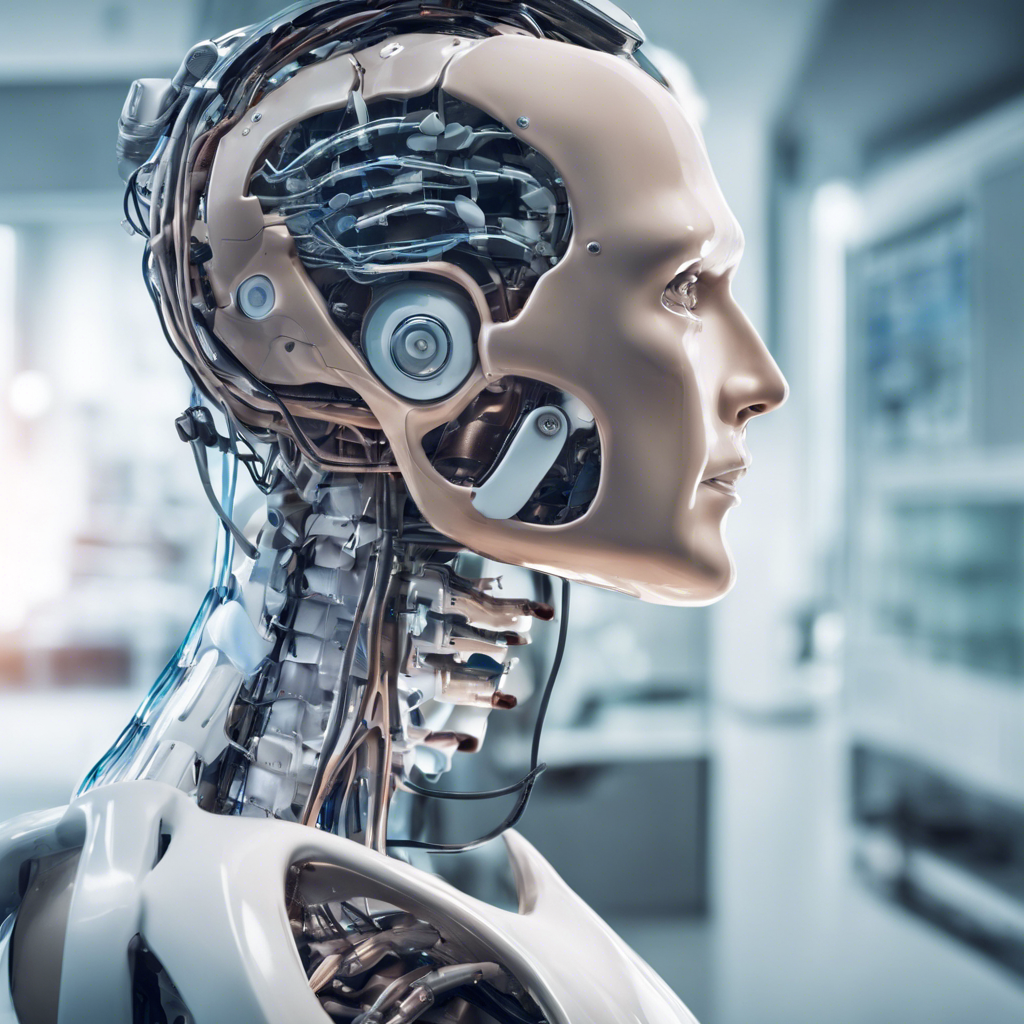The Rise of Artificial Intelligence in Healthcare

How AI is Revolutionizing the Medical Industry
In recent years, the field of healthcare has witnessed a remarkable transformation with the advent of artificial intelligence (AI). From diagnosing diseases to developing personalized treatment plans, AI is revolutionizing the medical industry. This powerful technology has the potential to improve patient outcomes, enhance efficiency, and reduce healthcare costs. In this article, we will explore the various applications of AI in healthcare and examine the benefits and challenges associated with its implementation.
1: AI in Diagnostics and Imaging
One of the most promising applications of AI in healthcare is in the field of diagnostics and medical imaging. AI algorithms can analyze medical images such as X-rays, MRIs, and CT scans, helping doctors detect and diagnose diseases more accurately and efficiently. These algorithms can quickly process vast amounts of data and identify patterns that may not be easily visible to the human eye. For example, AI has been used to detect early signs of breast cancer in mammograms with higher accuracy than radiologists. By leveraging AI, healthcare professionals can make more informed decisions and provide timely interventions, ultimately saving lives.
2: AI in Drug Discovery and Development
The process of discovering and developing new drugs is often time-consuming and costly. However, AI is streamlining this process by analyzing vast amounts of biological and chemical data to identify potential drug candidates. Machine learning algorithms can predict the efficacy and safety of drug compounds, reducing the need for extensive laboratory testing. This not only speeds up the drug development process but also increases the chances of finding successful treatments for various diseases. AI is also being used to repurpose existing drugs for new indications, offering a cost-effective solution to drug discovery.
3: AI in Personalized Medicine
Every patient is unique, and their response to treatment can vary significantly. AI is enabling the practice of personalized medicine by analyzing patient data, including genetic information, medical history, and lifestyle factors, to develop tailored treatment plans. Machine learning algorithms can identify patterns and correlations in large datasets, helping doctors predict a patient’s response to specific treatments or interventions. This allows for more targeted therapies, minimizing side effects and maximizing treatment efficacy. With AI, healthcare is shifting from a one-size-fits-all approach to a personalized and patient-centric model.
4: AI in Remote Patient Monitoring
The rise of telemedicine and remote patient monitoring has been accelerated by AI. Through wearable devices and sensors, AI algorithms can continuously monitor patients’ vital signs and detect any abnormalities or changes in health status. This enables early intervention and proactive healthcare management, particularly for patients with chronic conditions. AI-powered remote monitoring systems can also provide real-time feedback and personalized recommendations to patients, empowering them to take control of their health and well-being.
5: Ethical and Regulatory Considerations
While the potential of AI in healthcare is immense, it also raises ethical and regulatory concerns. The use of AI algorithms in decision-making processes, such as treatment recommendations or patient prioritization, raises questions about transparency, accountability, and bias. Additionally, the security and privacy of patient data must be safeguarded to maintain trust in AI-driven healthcare systems. Striking the right balance between innovation and regulation is crucial to ensure the responsible and ethical use of AI in healthcare.
Conclusion:
Artificial intelligence is transforming healthcare, offering unprecedented opportunities to improve patient care, enhance efficiency, and advance medical research. From diagnosing diseases to developing personalized treatment plans, AI is revolutionizing the way healthcare is delivered. However, as this technology continues to evolve, it is essential to address the ethical and regulatory challenges associated with its implementation. By harnessing the power of AI while upholding ethical standards, we can unlock the full potential of this technology and create a future where healthcare is more accessible, accurate, and personalized than ever before.

